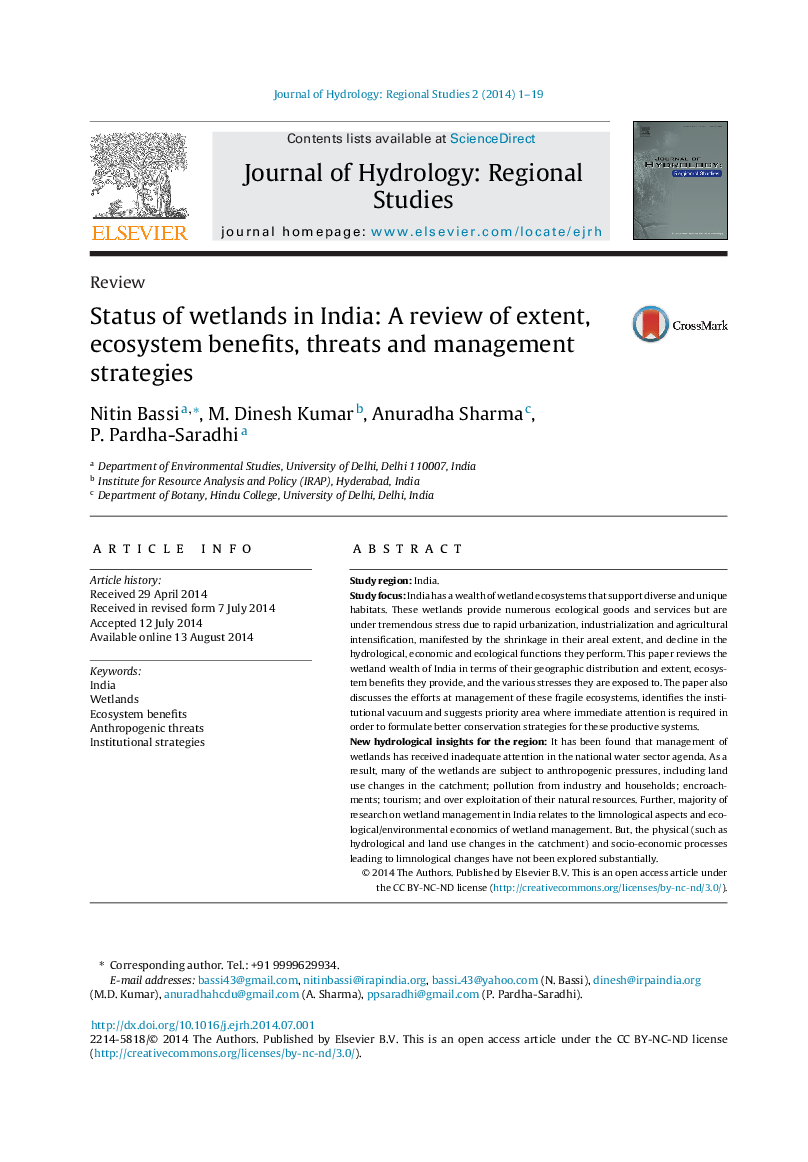| کد مقاله | کد نشریه | سال انتشار | مقاله انگلیسی | نسخه تمام متن |
|---|---|---|---|---|
| 4435280 | 1620142 | 2014 | 19 صفحه PDF | دانلود رایگان |
• Wetlands in India account for 4.7% of the total geographical area of the country.
• These wetlands provide numerous ecosystem goods and services, but are under stress.
• Reasons for wetlands loss in India are urbanization, land use changes and pollution.
• There is no proper regulatory framework for conservation of wetlands in India.
• Future research should focus on institutional factors influencing their condition.
Study regionIndia.Study focusIndia has a wealth of wetland ecosystems that support diverse and unique habitats. These wetlands provide numerous ecological goods and services but are under tremendous stress due to rapid urbanization, industrialization and agricultural intensification, manifested by the shrinkage in their areal extent, and decline in the hydrological, economic and ecological functions they perform. This paper reviews the wetland wealth of India in terms of their geographic distribution and extent, ecosystem benefits they provide, and the various stresses they are exposed to. The paper also discusses the efforts at management of these fragile ecosystems, identifies the institutional vacuum and suggests priority area where immediate attention is required in order to formulate better conservation strategies for these productive systems.New hydrological insights for the regionIt has been found that management of wetlands has received inadequate attention in the national water sector agenda. As a result, many of the wetlands are subject to anthropogenic pressures, including land use changes in the catchment; pollution from industry and households; encroachments; tourism; and over exploitation of their natural resources. Further, majority of research on wetland management in India relates to the limnological aspects and ecological/environmental economics of wetland management. But, the physical (such as hydrological and land use changes in the catchment) and socio-economic processes leading to limnological changes have not been explored substantially.
Journal: Journal of Hydrology: Regional Studies - Volume 2, November 2014, Pages 1–19
